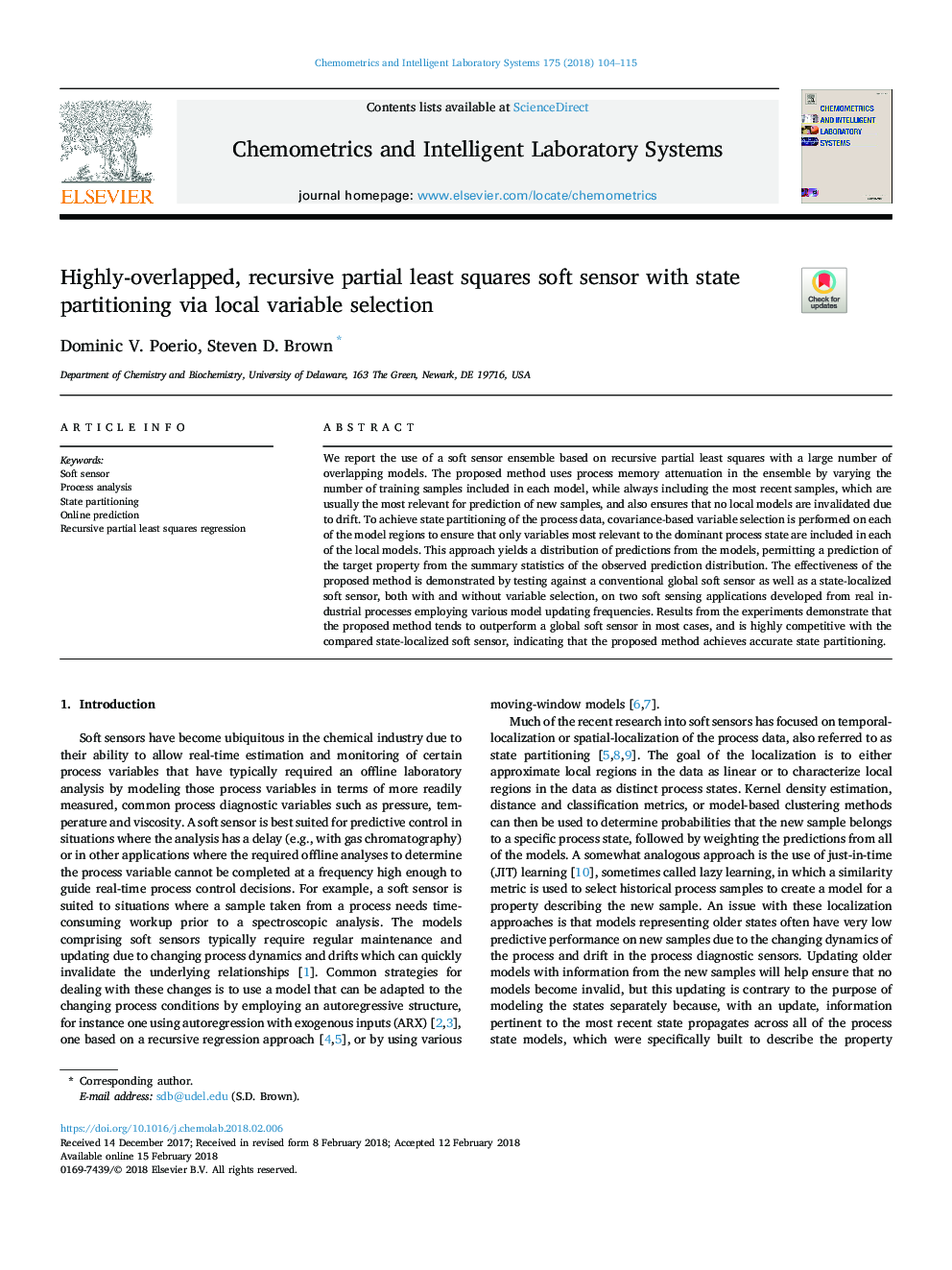| Article ID | Journal | Published Year | Pages | File Type |
|---|---|---|---|---|
| 7562161 | Chemometrics and Intelligent Laboratory Systems | 2018 | 12 Pages |
Abstract
We report the use of a soft sensor ensemble based on recursive partial least squares with a large number of overlapping models. The proposed method uses process memory attenuation in the ensemble by varying the number of training samples included in each model, while always including the most recent samples, which are usually the most relevant for prediction of new samples, and also ensures that no local models are invalidated due to drift. To achieve state partitioning of the process data, covariance-based variable selection is performed on each of the model regions to ensure that only variables most relevant to the dominant process state are included in each of the local models. This approach yields a distribution of predictions from the models, permitting a prediction of the target property from the summary statistics of the observed prediction distribution. The effectiveness of the proposed method is demonstrated by testing against a conventional global soft sensor as well as a state-localized soft sensor, both with and without variable selection, on two soft sensing applications developed from real industrial processes employing various model updating frequencies. Results from the experiments demonstrate that the proposed method tends to outperform a global soft sensor in most cases, and is highly competitive with the compared state-localized soft sensor, indicating that the proposed method achieves accurate state partitioning.
Related Topics
Physical Sciences and Engineering
Chemistry
Analytical Chemistry
Authors
Dominic V. Poerio, Steven D. Brown,
